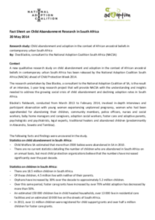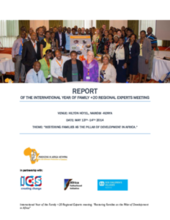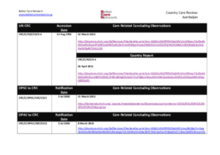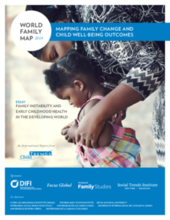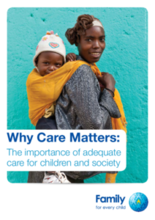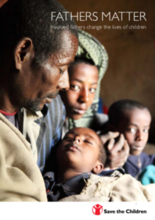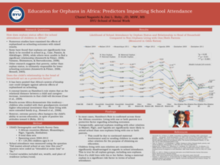Displaying 621 - 630 of 943
The presentation from Innocenti’s Expert Consultation on Family and Parenting Support focuses on the need for parenting interventions for preventing teenage sexual violence.
This article outlines a few of the common values and principles that provide the foundation for Muslim understandings of child–adult relationships and approaches to child protection and nurture.
This fact sheet summarizes a qualitative research study conducted by the National Adoption Coalition South Africa (NACSA) that explored child abandonment and adoption in the context of African ancestral beliefs in urban South Africa. The goal of this one-year study was to better understand the growing practice of child abandonment and declining adoption rates in South Africa.
This is a report of the proceedings of PAN’s contributions to the 20th Anniversary of the International Year of the Family (and the 10th anniversary of the Plan of Action - PoA - on the family in Africa) through a Regional Experts meeting whose theme was dubbed “Restoring families as the Pillar of Development in Africa”.
This country care review includes the care related Concluding Observations adopted by the Committee on the Rights of Persons with Disabilities as part of its examination of the first periodic report of Azerbaijan under Convention on the Rights of Persons with Disabilities at its 125th and 126th meetings, held on 1 and 2 April 2014, respectively.
This study examined whether spanking by the child's mother, father, or mother's current partner when the child was 1-year-old was associated with household CPS involvement between age 1 and age 5.
The second annual edition of the World Family Map investigates how family characteristics affect children’s healthy development around the globe and includes a new essay focusing on union stability and early childhood health in developing countries.
This report highlights the needs of children without adequate family care, the impact inadequate care on children and society, and why family care is important. In this report, Family for Every Child also issues several recommendations for those in all sectors of society and an example of care reform from Brazil.
This leaflet is a mapping of Save the children’s role and work in promoting the engagement of fathers. It presents some of the evidence of the benefits of involving fathers and some of the strategies used by the organization and others.
This powerful chart illustrates preliminary research findings using data from Demographic and Health Surveys (DHS) in 5 African countries (Malawi, Mozambique, Niger, Uganda and Zimbabwe) to better understand how orphan status affects the school attendance of children in Africa and the extent to which living in kinship care can act as a protective factor in this context.

